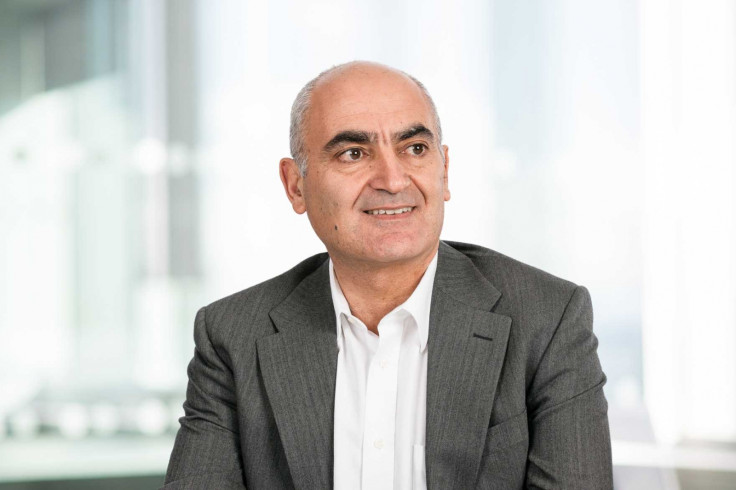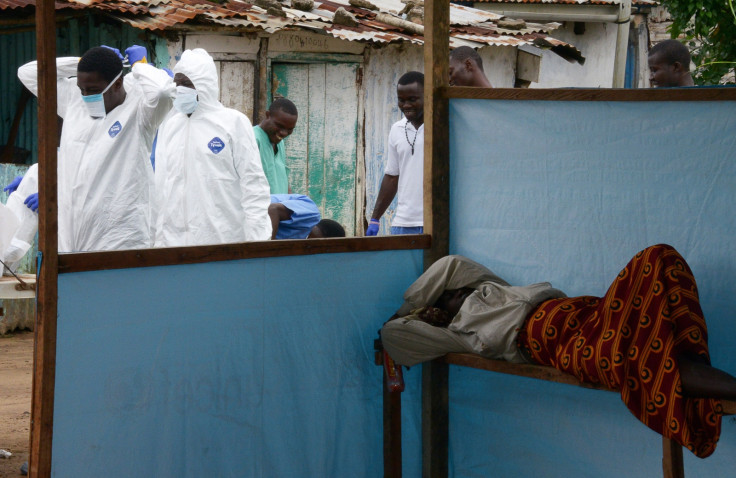Dr Moncef Slaoui: Is This The Man Who Can Save the World from Ebola?

The British pharmaceutical giant GlaxoSmithKline has announced it has appointed Dr Moncef Slaoui, one of the most influential figures in the industry, as the new chairman of vaccines.
GSK, the largest drug manufacturer in the UK, says it is working to accelerate the development of a vaccine to treat the virus, and claims the world will have its first vaccine against Ebola by the end of the year.
The current outbreak, which began in January, is already the biggest Ebola epidemic in history, with more than 4,500 deaths and thousands more infected. The fatalities have been almost exclusively concentrated in the West African countries of Liberia, Guinea and Sierra Leone, where Ebola is currently claiming more than 20 lives per day.
With the rate of infection continuing to spiral upward, the need to develop a vaccine to tackle the pathogen is urgent.
But who is Dr Slaoui – and what has he been involved in so far?
Slaoui has played an influential role in how GSK discovers and develops new drugs. His background lies in molecular biology and immunology, in which he has a doctorate from the Université Libre de Bruxelles in Belgium. He completed postdoctoral studies at Harvard Medical School and at Tufts University School of Medicine.
Prior to his work in biopharmaceuticals, Slaoui was a professor of immunology at the University of Mons, Belgium. Overall, he has written more than 100 scientific papers, and is fluent in English, French and Arabic. He is also a board member for the Agency for Science, Technology & Research, otherwise known as A*Star.

In his previous position as senior vice president of GSK's Worldwide Business Development and External Alliances team, he served on the R&D Executive Team and spearheaded changes in R&D to enhance drug discovery and push forward product development.
Prior to that, in GSK Vaccines, he engineered the development of a robust vaccines pipeline, including Rotarix, to prevent infantile gastroenteritis, and Cervarix, to prevent cervical cancer.
"The four key principles that underpin everything we have done in R&D for the past five years are: focus on the best science, re-personalise R&D, externalise R&D and focus on return on investment," Slaoui previously explained to the Wall Street Journal about the programme.
Now fronting GSK's Ebola vaccine programme, Slaoui will continue to provide scientific and technical counsel on pharmaceutical research and development activities to both the CEO and the board.
Yet although his appointment comes as the company speeds up its trials and production process of the Ebola vaccine, Slaoui has warned that mass quantities of the drug will not be available to the public for 12 to 18 months.
Normally, a vaccine takes between 10 to 30 years to transition from the idea stage to approval for human use. GSK is working to compress that time frame, but there is no projection as to when the drug will be released to the public.
"Normally, we need data from thousands, if not tens of thousands of healthy volunteers before we can make a vaccine available," Slaoui told CNBC this week. "In this particular setting ... we will need data from perhaps several hundred, maybe a thousand volunteers."
While Slaoui leads GSK's push to develop the vaccine, the world still faces a significant wait before a vaccine will be readily available to tackle Ebola.
© Copyright IBTimes 2025. All rights reserved.





















